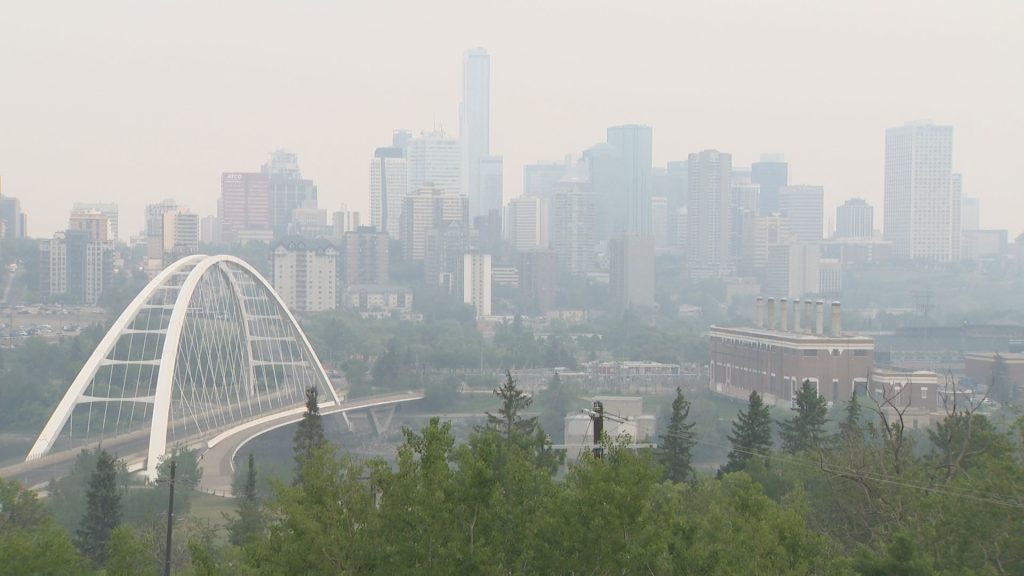Pronghorns in the Prairies: herds spotted near Edmonton

Posted May 21, 2025 4:21 pm.
Last Updated May 21, 2025 6:42 pm.
If you’ve been driving down the QE2 near Leduc, or Highway 19 near Devon and done a double-take, it’s not your eyes deceiving you. Pronghorns, commonly found in southern Alberta and southern Saskatchewan, have made their way to the Edmonton area.
“At one point, sort of historical 1900s, the grasslands used to always go up to edmonton. So it’s not too far out of their historic range, it’s just out of their current range,” said Paul Jones, a biologist with the Alberta Conservation Association.
Photos and videos posted to social media of the small herd near the town of Devon. According to posts, the pronghorns were spotted around the beginning of January.
Some people posting online that they’ve also seen pronghorns along the highway south of Leduc shocked to see the animals this far north and mistake them for antelope.
“Pronghorns are an endemic species to North America, meaning this is where they originated. They’re the only living member of their family. But the misnomer comes with antelopes during the times of Lewis and Clarke, when they first were exploring the west and saw a pronghorn, and it reminded them of the antelope of Africa,” Jones explained.
Jones says based on his extensive study of pronghorns, the herd of four pronghorns spotted in multiple locations is likely the same single herd, as they can travel great distances. And according to Jones, they likely won’t stick around once the snow flies.
“Cause they don’t do well in deep snow. They have very small legs; the bones in their lower limbs are about the size of your index finger. So they’re great for running, and they can hit speeds of up to 100 kilometres per hour, but they can’t paw through snow like a deer or an elk or a bison would do to get to forage. Depending on what the winter conditions are next winter, it will likely push them south to where they came from.”








